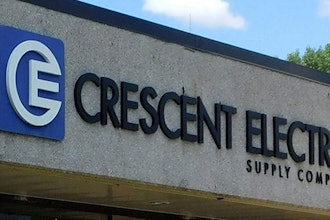SHANGHAI (AP) — General Motors Co. and Chinese partner SAIC announced Wednesday plans for joint development of fuel-efficient small engines and transmissions, focusing squarely on the fastest-growing part of China's huge auto market.
The companies, which run several joint ventures including their flagship Shanghai GM, will develop a 1 liter to 1.5 liter direct-injection, turbocharged gasoline engine to be used by both sides in China and in globally sold vehicles, they said.
The work will be done in Detroit and at Shanghai's Pan Asia Technical Automotive Center, the companies' joint venture engineering and design center.
China is the biggest auto market by number of vehicles sold, and automakers like GM are looking to the country to drive revenues and offset weak global demand, though growth has fallen off since a boom last year fueled by tax cuts and subsidies.
Those incentives, aimed mainly at fuel-efficient vehicles, spurred a surge in sales of Wuling minivans, Chevrolet Sails and other small cars favored by cost-conscious families buying their first cars.
Keen to limit the country's growing dependence on imported oil and clean up city skies, China's planners are increasingly emphasizing the need for better fuel economy and emissions controls — and encouraging automakers to follow suit.
Ford Motor Co. has announced plans to introduce its "EcoBoost" line of direct-injection turbocharged engines, which provide a 20 percent increase in fuel efficiency, in the 1 liter Ford Mondeo produced at its joint venture Changan Ford Mazda Automotive Ltd., in western China's Chongqing.
The GM-SAIC new engine project fits in with the two companies' plans to expand sales in other developing markets, especially India. It will also develop front-wheel-drive transmissions to provide about a 10 percent improvement in fuel efficiency over conventional automatic transmissions.
"Together, we will continue to quickly provide our customers leading-edge technologies that improve fuel efficiency and deliver robust performance," said Tom Stephens, GM's vice chairman of global products operations.
Overall, vehicles powered by the new engines and transmissions will see up to a 20 percent improvement in carbon-dioxide emissions, he said.
The companies did not provide any financial figures for the new project.


















